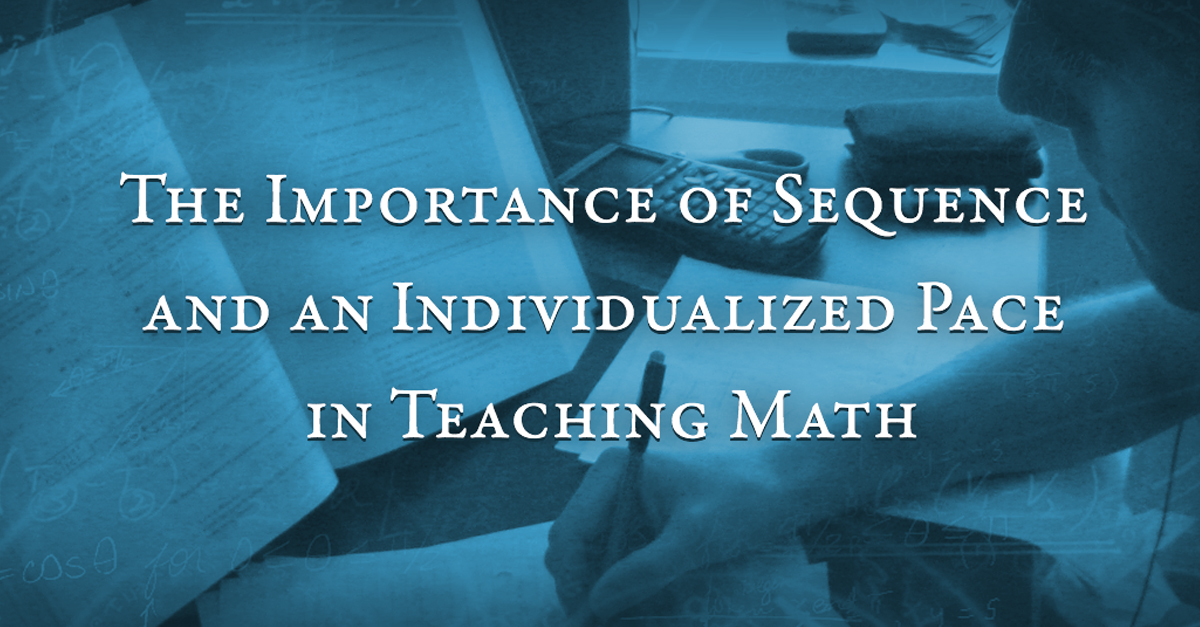The Importance of Sequence and an Individualized Pace in Teaching Math

Teaching math in sequence is just as important as teaching someone how to drive by showing them one step at a time.
Sequence is Important
Imagine if someone tried to teach you to drive by giving you the keys and telling you to drive home. Without learning basic skills like how to brake or use turn signals, you would be ill-prepared to actually drive and would probably wind up crashing.
Teaching sequential math is just as important as teaching someone how to drive by showing them one step at a time. This is mostly understood in the very beginning of a child’s education when we teach numbers and basic addition and subtraction. But often, the further along we go, the less the emphasis is on sequential learning. For example, mastering the order of operations is essential to mastering algebra, but frequently order of operations is only dwelt on briefly and then it’s on to the next topic before students have the chance to really master the material. When we learn in sequence, mastering each concept before moving on to the next, we are able to tackle harder problems and learn tougher concepts more easily because we have a foundation on which that learning can take place. When we learn out of sequence or move on to the next topic before we’ve mastered the current topic, it becomes much more difficult to continue learning.
There is a problem with sequential learning: students don’t learn concepts at the same speed and pace as other students. A student may learn one math concept in a matter of days while another concept takes him weeks or longer to master. One of the problems with modern education is that there is often no time for a student to work through difficult math concepts until full mastery is achieved. Sequential learning must go hand in hand with an individualized pace for each student.
As parents, we need to be proactive in making sure that our children are mastering math.
Sequence Teaching Tips
1. Ask your kids if they feel comfortable with the speed at which the math is being taught. Take additional time to focus on foundational concepts that they struggle with to help them master the material.
2. Frequently review previously learned math skills with your children — if your children are learning basic multiplication, review addition with them to make sure they have mastered it.
3. Pay attention if your children seem continually frustrated with learning math — frustration is often a sign that they have not mastered previous material and that is interfering with new learning. Learning math in sequence and at an individualized pace is absolutely crucial for success in learning.